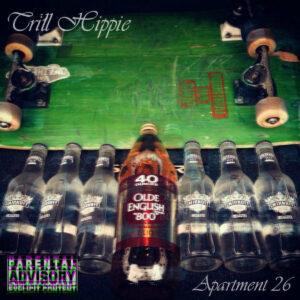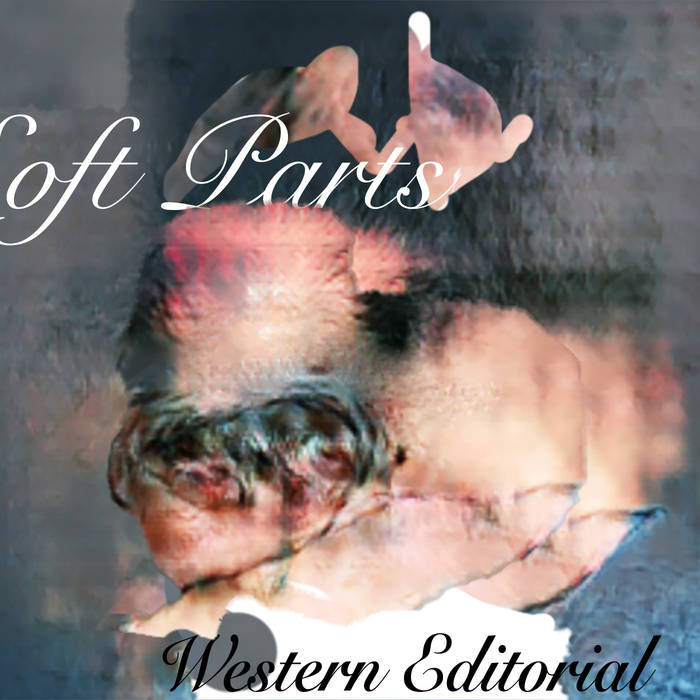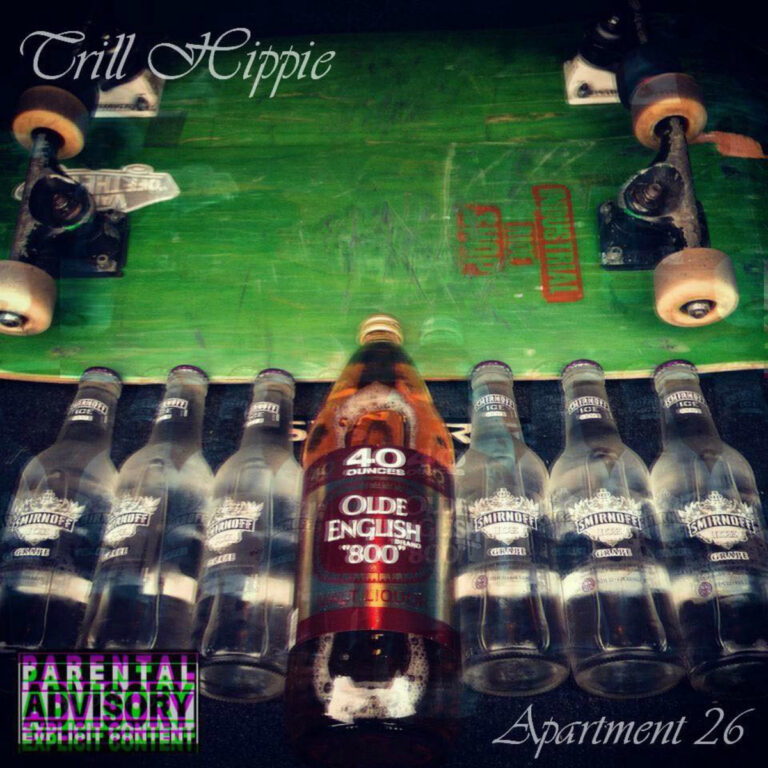Warning: if you are having trouble sleeping or concentrating during the waking hours, then this album probably won’t help matters. Western Editorial challenges the listener to stay focused amidst chaos, a strategy that we should all practice embracing these days. That said, invoking an idea the Radiohead made famous—everything all of the time—or a word that Marshall McLuhan favored when talking about media in postmodernity—allatonceness—may prove to be a balm of sorts before one is subjected to this enjoyable onslaught of sounds and ideas. On one hand, there’s the sizzling, droning intensity of “Alf,” on the other, there is the clattering and repeatedly, enigmatically bubbling discourse of “Denver, Before the War.” Finally there is an insect-like thing called “The Regent’s Old Carapace.” Damn, where’s my copy of Amnesiac?!
NuGen Radio Trill Hippie - Apartment 26 (Medication 2) (Self-released)
Smooth indie hip-hop with a dreamy texture and druggy rhythmics, here’s an album that will keep listeners guessing the project’s next direction—and ultimate destination—from track to track. There’s precocious sampling and urgent, gangsta declamations that segue into rocking R&B with smooth-as-silk, Barry White-like vocalizing and constant references to trap, as if someone on board this boat spent the last summer listening intently to Kendrick Lamar or Andre 3000 with ill plans for their own conquest of space and time on their beat-broke mind. The tunes I liked best may not be the tunes you like best, but regardless this album represents some solid hip-hop enterprising from straight outta El Burque. My favorites list: “Where da Weed At,” “Insomnia” and “BOOF.” The closing track, “Zone,” confirms that I am in my zone, lean or not.
12roots The Irony of Being The Fool (Self-released)
There’s a fab guitar riff at the beginning of “Now Part 2,” the opening track of a new rocanrol album by 12roots, but it sorta gets lost in the mix as an acerbically synthesized second string track and achey-breaky vocals climb over and through its clear tonality. The songwriting is arguably decent throughout this album, but I couldn’t help but feel frustrated with some of the engineering decisions made by whomever was at the console when the work was recorded. The title track suffers from the same sort of confusing instrumental overlays, but the final three cuts—particularly the affecting, almost-beautiful “Lost at 16” show this formula can work—with some practice. Advice to young practitioners of this genre: get that bass and those toms working, kidz! Treble is cool, but too much of it can kill—and not in a good way.






